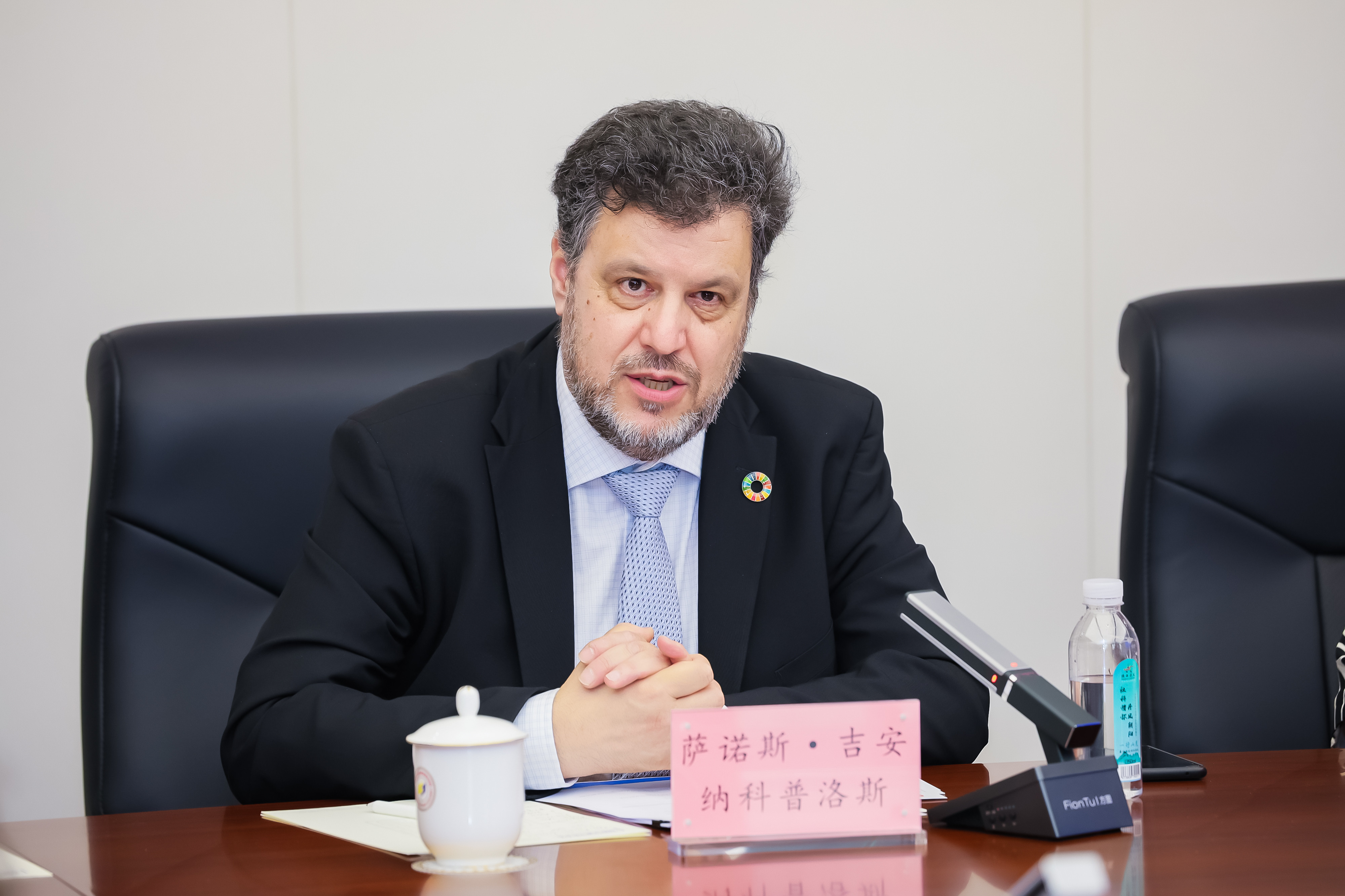On the morning of June 10, Mr. Thanos Giannakopoulos, Principal Librarian of Dag Hammarskjöld Library at the United Nations (UN) Headquarters, led a delegation to visit the University of Chinese Academy of Social Sciences (UCASS). During this visit, he delivered an academic lecture titled "United Nations Policies on Digital Information Management" on the Liangxiang Campus.
Prior to the lecture, Cui Weihang, Secretary of the Party Committee of UCASS, met with Thanos Giannakopoulos, accompanied by Lou Feng, Deputy Director of the Chinese Academy of Social Sciences Library, Gao Cheng, Vice President of UCASS, Zhan Long, Assistant to the President of UCASS, as well as heads of relevant departments. Subsequently, Gao Cheng escorted these distinguished guests on a tour of the University of Chinese Academy of Social Sciences Library and the Key Laboratory of Archaeological Sciences and Cultural Heritage of the Chinese Academy of Social Sciences (CASS).

In her welcome address, Gao Cheng extended a sincere welcome to Thanos Giannakopoulos and his delegation. She noted that this lecture represented a valuable opportunity for further collaboration between UCASS and international organizations, presenting unique perspectives on global digital information management for UCASS faculty and students. Meanwhile, she briefed UCASS's development history and educational characteristics, as well as the developing progress of UCASS Library.

During his presentation, Thanos Giannakopoulos offered a thorough interpretation of the UN's Pact for the Future, which aims to advance sustainable development, international peace and security, scientific and technological innovation, digital cooperation, and other areas, in an effort to forge a powerful global collaborative framework. He underscored the importance of upholding open and equitable principles in information management, safeguarding access to global research resources and publication rights, strengthening digital services for the Global South, and fostering cooperation between Dag Hammarskjöld Library and universities. Furthermore, he elaborated on issues such as privacy protection, data security, and gender equality, advocating for the integration of indigenous knowledge and enhanced synergy in UN governance, as well as sharing his vision for the future development of the Library. Looking ahead, he is highly confident in the tremendous potential for cooperation between Dag Hammarskjöld Library and Chinese academic institutions.
